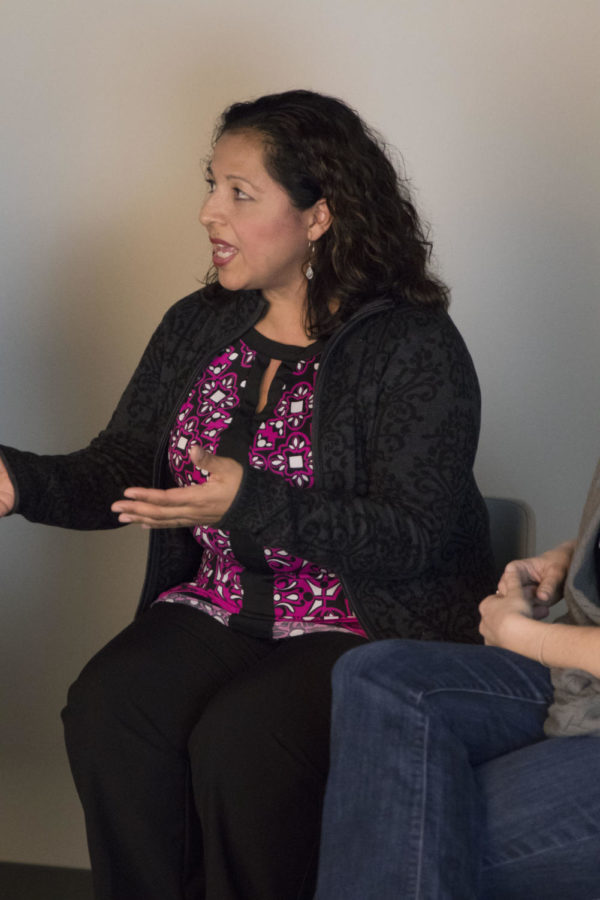Discussing Latinx students’ classroom experience
Liz Mendez-Shannon talks about diversity and inclusion for the Hispanic and Latinx community at the Daily Lounge March 30.
October 10, 2018
“My existence is resistance,” said Sarah Rodriguez-Jones, assistant professor in the school of education.
On Wednesday, three women, Liz Mendez-Shannon, project director of Hispanic/Latinx affairs, Kimberly Greder, associate professor of human development & family studies and Sarah Rodriguez-Jones, assistant professor in the school of education, gathered to discuss the socialization and education experiences for the Latinx youth in the United States.
“At Iowa State … we are a historically white [institution],” Greder said. “So it is very important to identify our identities and how we socialize across campus.”
Greder and the other two women on this panel all agreed on the importance of making Latinx students feel more included and wanted in the classroom. In recognizing this, they also realize that in demanding inclusivity, you are, “inviting conflict,” Mendez-Shannon said.
But despite how difficult it can be, this discussion brought attention to the importance of teachers decolonizing their syllabus and curriculum.
“I think as teachers, it is also letting ourselves be vulnerable and being those continual learners that we say we are,” Greder said.
Through this statement, Greder recognized the fact that it is not always easy for teachers to make their classroom a more inclusive place, and it certainly does not happen all at once.
“It’s about the small wins,” said the moderator Jose Rosa, faculty fellow for diversity and inclusion and professor of marketing.
Mendez-Shannon also recognized the importance of making Latinx students in the classroom feel wanted and included not only for their own well-being, but also for how they perform in the classroom.
“Imagine … you’re reading all these things that you do not relate to, and you’re trying to get an A in the class,” Mendez-Shannon said.
This relates to the importance of decolonizing the curriculum and realizing if students are unable to relate to the literature and discussions in the classroom, they cannot be expected to succeed.
“Relationships and experiences shape who we are,” Greder said, again, focusing importance on the socialization situations Latinx students experience in the classroom.
Editor’s note: An earlier version of this article incorrectly identified Liz-Mendez Shannon’s position. The article has since been updated to reflect her position as project director of Hispanic/Latinx affairs.







